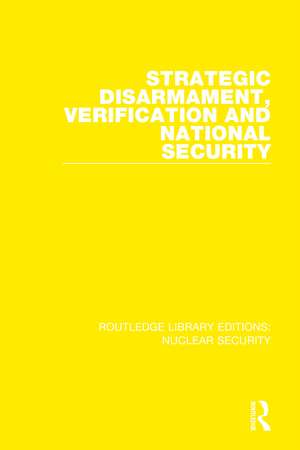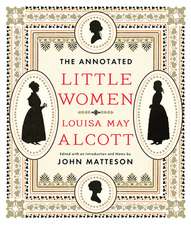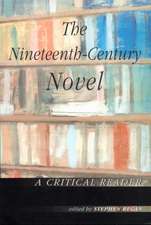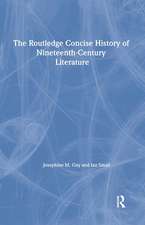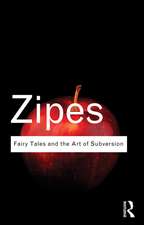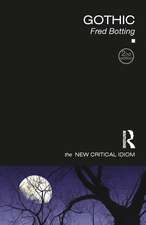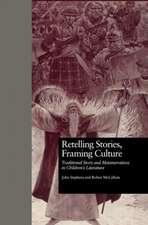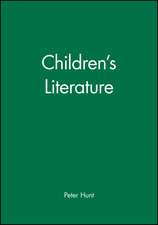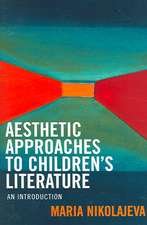Routledge Library Editions: Nuclear Security: 31 Volume Set: Routledge Library Editions: Nuclear Security
Autor Variousen Limba Engleză Hardback – 18 noi 2020
Din seria Routledge Library Editions: Nuclear Security
-
 Preț: 258.67 lei
Preț: 258.67 lei -
 Preț: 313.34 lei
Preț: 313.34 lei -
 Preț: 323.58 lei
Preț: 323.58 lei -
 Preț: 322.97 lei
Preț: 322.97 lei -
 Preț: 256.34 lei
Preț: 256.34 lei -
 Preț: 349.05 lei
Preț: 349.05 lei -
 Preț: 322.97 lei
Preț: 322.97 lei - 18%
 Preț: 782.44 lei
Preț: 782.44 lei -
 Preț: 316.06 lei
Preț: 316.06 lei - 18%
 Preț: 891.36 lei
Preț: 891.36 lei -
 Preț: 274.88 lei
Preț: 274.88 lei -
 Preț: 243.85 lei
Preț: 243.85 lei -
 Preț: 313.34 lei
Preț: 313.34 lei - 18%
 Preț: 787.17 lei
Preț: 787.17 lei -
 Preț: 323.58 lei
Preț: 323.58 lei - 15%
 Preț: 695.90 lei
Preț: 695.90 lei -
 Preț: 278.03 lei
Preț: 278.03 lei - 18%
 Preț: 891.36 lei
Preț: 891.36 lei -
 Preț: 310.66 lei
Preț: 310.66 lei - 18%
 Preț: 782.44 lei
Preț: 782.44 lei -
 Preț: 313.34 lei
Preț: 313.34 lei -
 Preț: 349.80 lei
Preț: 349.80 lei - 15%
 Preț: 697.53 lei
Preț: 697.53 lei -
 Preț: 315.68 lei
Preț: 315.68 lei -
 Preț: 242.54 lei
Preț: 242.54 lei - 18%
 Preț: 790.66 lei
Preț: 790.66 lei - 18%
 Preț: 790.82 lei
Preț: 790.82 lei - 15%
 Preț: 700.30 lei
Preț: 700.30 lei - 15%
 Preț: 699.46 lei
Preț: 699.46 lei - 18%
 Preț: 895.94 lei
Preț: 895.94 lei - 18%
 Preț: 904.61 lei
Preț: 904.61 lei
Preț: 11400.92 lei
Preț vechi: 17963.66 lei
-37% Nou
Puncte Express: 17101
Preț estimativ în valută:
2182.25€ • 2371.21$ • 1834.28£
2182.25€ • 2371.21$ • 1834.28£
Carte tipărită la comandă
Livrare economică 21 aprilie-05 mai
Preluare comenzi: 021 569.72.76
Specificații
ISBN-13: 9780367506827
ISBN-10: 0367506823
Pagini: 7800
Dimensiuni: 138 x 216 mm
Greutate: 14.59 kg
Ediția:1
Editura: Taylor & Francis
Colecția Routledge
Seria Routledge Library Editions: Nuclear Security
Locul publicării:Oxford, United Kingdom
ISBN-10: 0367506823
Pagini: 7800
Dimensiuni: 138 x 216 mm
Greutate: 14.59 kg
Ediția:1
Editura: Taylor & Francis
Colecția Routledge
Seria Routledge Library Editions: Nuclear Security
Locul publicării:Oxford, United Kingdom
Public țintă
Postgraduate, Professional, and UndergraduateCuprins
1. Strategic Disarmament, Verification and National Security Stockholm International Peace Research Institute (1977); 2. Tactical Nuclear Weapons: European Perspectives Stockholm International Peace Research Institute (1978); 3. Postures for Non-Proliferation: Arms Limitation and Security Policies to Minimize Nuclear Proliferation Stockholm International Peace Research Institute (1979); 4. Nuclear Energy and Nuclear Weapon Proliferation Stockholm International Peace Research Institute (1979); 5. Internationalization to Prevent the Spread of Nuclear Weapons Stockholm International Peace Research Institute (1980); 6. Agreements for Arms Control: A Critical Survey Jozef Goldblat, Stockholm International Peace Research Institute (1982); 7. Uranium Enrichment and Nuclear Weapon Proliferation Allan S. Krass, Peter Boskma, Boelie Elzen & Wim A. Smit, Stockholm International Peace Research Institute (1983); 8. Nuclear Disengagement in Europe Sverre Lodgaard & Marek Thee (Eds), Stockholm International Peace Research Institute (1983); 9. The Arms Race and Arms Control 1984 Stockholm International Peace Research Institute (1984); 10. No-First-Use Frank Blackaby, Jozef Goldblat & Sverre Lodgaard (Eds) Stockholm International Peace Research Institute (1984); 11. Countdown to Space War Bhupendra Jasani & Christopher Lee, Stockholm International Peace Research Institute (1984); 12. Safeguarding the Atom: A Critical Appraisal David Fischer & Paul Szasz; Jozef Goldblat (Ed.), Stockholm International Peace Research Institute (1985); 13. Non-Proliferation: The Why and the Wherefore Jozef Goldblat (Ed.), Stockholm International Peace Research Institute (1985); 14. Verification: How Much is Enough? Allan S. Krass, Stockholm International Peace Research Institute (1985); 15. Arms in the '80s: New Developments in the Global Arms Race John Turner, Stockholm International Peace Research Institute (1985); 16. International Atomic Policy: During a Decade 1945-1955 Elis Biorklund (1956); 17. Dangers of Deterrence: Philosophers on Nuclear Strategy Nigel Blake & Kay Pole (Eds) (1983); 18. Objections to Nuclear Defence: Philosophers on Deterrence Nigel Blake & Kay Pole (Eds) (1984); 19. The Nuclear Confrontation in Europe Jeffrey H. Boutwell, Paul Doty & Gregory F. Treverton (Eds) (1985); 20. Deterrence in the 1980s: Crisis and Dilemma R. B. Byers (Ed.) (1985); 21. The Dynamics of the Arms Race David Carlton & Carlo Schaerf (Eds) (1975); 22. The Proliferation Puzzle: Why Nuclear Weapons Spread (and What Results) Zachary S. Davis & Benjamin Frankel (Eds) (1993); 23. Australia and Nuclear War Michael Denborough (Ed.) (1983); 24. Nuclear Non-Proliferation and Global Security David B. Dewitt (Ed.) (1987); 25. Nuclear Playground Stewart Firth (1987); 26. Arms Control: Management or Reform? Lawrence Freedman (1986); 27. Ethics and Nuclear Deterrence Geoffrey Goodwin (Ed.) (1982); 28. The Logic of Nuclear Terror Roman Kolkowicz (Ed.) (1987); 29. Nuclear-Free Zones David Pitt & Gordon Thompson (Eds) (1987); 30. The Nuclear Predicament: Explorations in Soviet Ideology Stephen Shenfield (1987); 31. The Other Side of Arms Control: Soviet Objectives in the Gorbachev Era Alan Sherr (1988)
Descriere
This 31-volume set contains titles, originally published between 1956 and 1993. The majority of titles are from the 1980s. International in scope the volumes look at the arms race, deterrence, nuclear proliferation, global policy and strategy and various other issues within the area of nuclear security.
Notă biografică
Various authors.
Original Series Editors:
David Canter is Emeritus Professor at The University of Liverpool, UK. Having set up the first MSc in Environmental Psychology at The University of Surrey in 1972, he went on to establish the Journal of Environmental Psychology in 1980, editing it for 20 years. Soon after he founded the International Association of People-Environment Studies (IAPS). David has published widely on many aspects of human interactions with their surroundings; his 1977 book The Psychology of Place, being one of the most cited publications in the area.
David Stea is Professor Emeritus of Geography and International Studies at Texas State University and Research Associate with the Center for Global Justice in Mexico. As Carnegie Interdisciplinary Fellow at Brown University from 1964 to 1966, he developed the new field of Environmental Psychology and the related study of spatial and geographic cognition. David is a member of the editorial boards of a number of journals, the co-author or co-editor of several books and author of some 150 articles and book chapters on various subjects, including sustainable development and environmental issues in Latin America. In 1987 he was nominated for the Right Livelihood Prize (also known as the “alternative Nobel”) for his international work with indigenous peoples.
Original Series Editors:
David Canter is Emeritus Professor at The University of Liverpool, UK. Having set up the first MSc in Environmental Psychology at The University of Surrey in 1972, he went on to establish the Journal of Environmental Psychology in 1980, editing it for 20 years. Soon after he founded the International Association of People-Environment Studies (IAPS). David has published widely on many aspects of human interactions with their surroundings; his 1977 book The Psychology of Place, being one of the most cited publications in the area.
David Stea is Professor Emeritus of Geography and International Studies at Texas State University and Research Associate with the Center for Global Justice in Mexico. As Carnegie Interdisciplinary Fellow at Brown University from 1964 to 1966, he developed the new field of Environmental Psychology and the related study of spatial and geographic cognition. David is a member of the editorial boards of a number of journals, the co-author or co-editor of several books and author of some 150 articles and book chapters on various subjects, including sustainable development and environmental issues in Latin America. In 1987 he was nominated for the Right Livelihood Prize (also known as the “alternative Nobel”) for his international work with indigenous peoples.
Recenzii
“The timely re-issue of the prescient Ethnoscapes series provides an invaluable contribution to current concerns about built and natural environments. The breadth of coverage of these books, includes public participation in environmental modifications, the impact of housing design on the quality of life, cross-cultural comparisons of placemaking, and the role of building aesthetics on well-being, across many countries and contexts adds up to a treasure trove of innovative research. Now more than ever we need the benefit of the insights and findings of these scholars and professional (many of course who are both) who, over three decades, have studied crucial aspects of interactions between people and their surroundings.”
Ricardo García Mira, Professor of Social Psychology, University of A Coruna, Galicia, Spain. Former Spanish MP.
“The reissued volumes in the Ethnoscapes series were ground- breaking when they first appeared and remain fresh today. These books are essential for understanding how design and the use of space has cultural and human meaning that “artificial intelligence” could never achieve. They offer a vital and timely antidote to mind-numbing apology for the appropriation of civic space and corporate reproduction of McMansions and shopping malls.”
Ben Wisner, Honorary Visiting Professor, University College London, UK.
“The physical aspects of our wonderfully complex world combine with social and psychological factors, to give a myriad of joys and sorrows accompanying our lifeworld activities. To make existence manageable, we need to find order within such chaos. As researchers of all types, but especially social scientists, we are driven to identify networks of causes and effects. This series provides excellent examples of such writing, concerning natural and built environments, from a host of scholars, representing a range of disciplines.”
Andrew Turk, Adjunct Associate Professor, Murdoch University, Western Australia.
“People interested and concerned about how we are interacting with and shaping our built and natural environments will find the insights and findings in this re-issued Ethnoscapes series of great value. Over more than 30 years this accumulated cornucopia of research reveals how important it is to understand the meanings and significance of many aspects of human- environment transactions. These include studies of user involvement in design, with its implications for place-making, as well as crucial explorations of the meaning of home and the role of environmental aesthetics for our wellbeing. Every volume opens new doors, often being the forerunners to major areas of study.”
Arza Churchman, Professor Emerita at Technion- Israel Institute of Technology, Haifa, Israel.
“The re-issue of the Ethnoscapes series provides everyone who cares about human-environment studies a wonderful opportunity to re-acquaint themselves with many groundbreaking efforts in the field. The series provides a wide range of explorations by researchers who have helped to make sense of persons in interaction with their surroundings, and contributed to inspired placemaking”.
Robert Gifford, Professor of Psychology and Environmental Studies, University of Victoria, British Columbia, Canada.
Ricardo García Mira, Professor of Social Psychology, University of A Coruna, Galicia, Spain. Former Spanish MP.
“The reissued volumes in the Ethnoscapes series were ground- breaking when they first appeared and remain fresh today. These books are essential for understanding how design and the use of space has cultural and human meaning that “artificial intelligence” could never achieve. They offer a vital and timely antidote to mind-numbing apology for the appropriation of civic space and corporate reproduction of McMansions and shopping malls.”
Ben Wisner, Honorary Visiting Professor, University College London, UK.
“The physical aspects of our wonderfully complex world combine with social and psychological factors, to give a myriad of joys and sorrows accompanying our lifeworld activities. To make existence manageable, we need to find order within such chaos. As researchers of all types, but especially social scientists, we are driven to identify networks of causes and effects. This series provides excellent examples of such writing, concerning natural and built environments, from a host of scholars, representing a range of disciplines.”
Andrew Turk, Adjunct Associate Professor, Murdoch University, Western Australia.
“People interested and concerned about how we are interacting with and shaping our built and natural environments will find the insights and findings in this re-issued Ethnoscapes series of great value. Over more than 30 years this accumulated cornucopia of research reveals how important it is to understand the meanings and significance of many aspects of human- environment transactions. These include studies of user involvement in design, with its implications for place-making, as well as crucial explorations of the meaning of home and the role of environmental aesthetics for our wellbeing. Every volume opens new doors, often being the forerunners to major areas of study.”
Arza Churchman, Professor Emerita at Technion- Israel Institute of Technology, Haifa, Israel.
“The re-issue of the Ethnoscapes series provides everyone who cares about human-environment studies a wonderful opportunity to re-acquaint themselves with many groundbreaking efforts in the field. The series provides a wide range of explorations by researchers who have helped to make sense of persons in interaction with their surroundings, and contributed to inspired placemaking”.
Robert Gifford, Professor of Psychology and Environmental Studies, University of Victoria, British Columbia, Canada.
